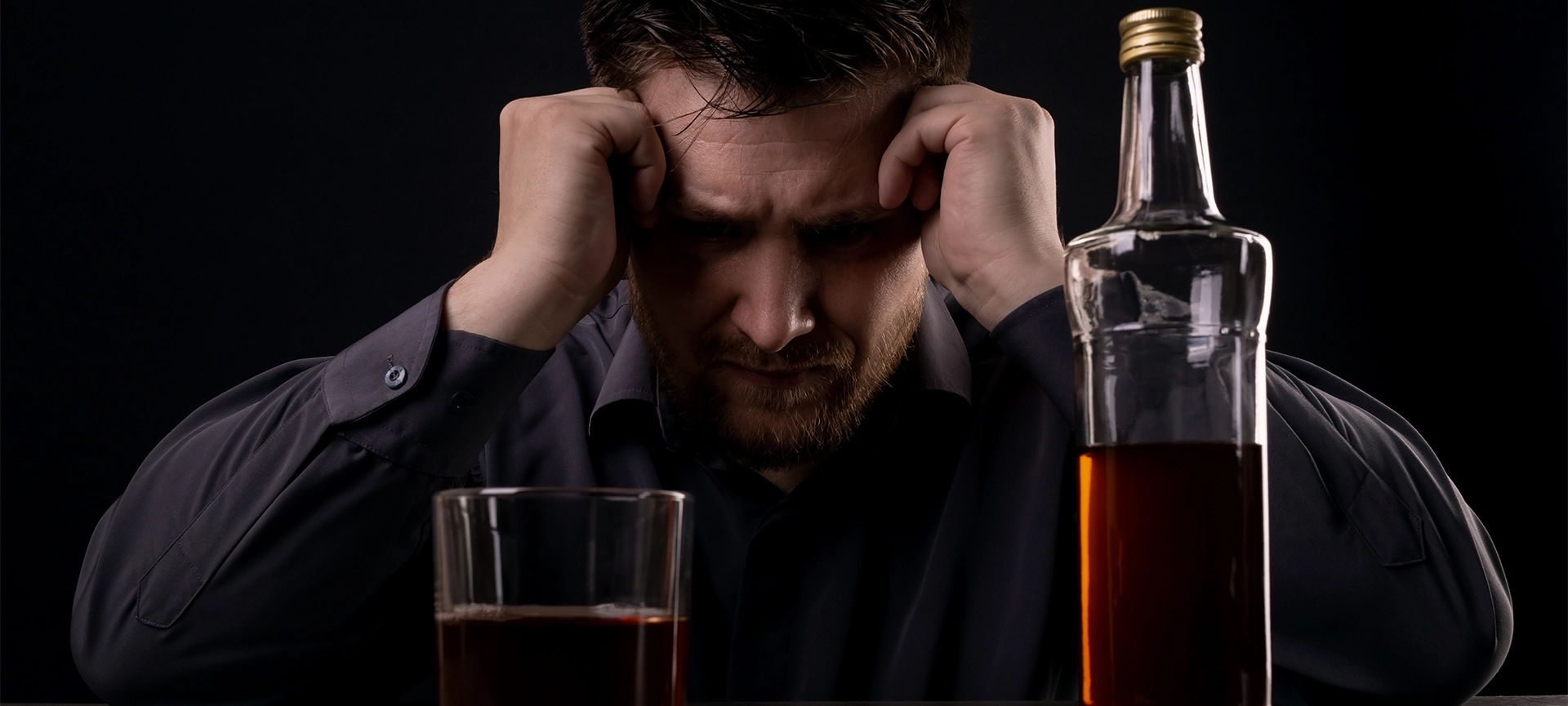Mental health and addiction are two interrelated and complex issues that can significantly impact an individual’s well-being. Whether for yourself or a loved one, understanding the connection between mental health and addiction is crucial for seeking effective support and treatment.
This blog post explores the intricate relationship between these two areas, highlighting how mental health issues can contribute to addiction and vice versa. Essentially, we’ll answer the question of what is the connection between addiction and mental health.
We’ll also explore common co-occurring disorders like anxiety, depression, and PTSD. Through this knowledge, you’ll understand the importance of integrated addiction treatment approaches in improving outcomes.
The Interplay Between Mental Health and Addiction
Mental health and addiction often coexist and influence each other in various ways. While the relationship can differ from person to person, several key factors contribute to their interconnectedness.
Firstly, individuals with pre-existing mental health conditions may turn to substances to self-medicate or cope with their symptoms. Substance use may temporarily alleviate distress or help manage overwhelming emotions, but it can quickly develop into a destructive cycle of addiction.
Conversely, substance abuse can also lead to the onset or exacerbation of mental health disorders. Prolonged drug or alcohol use can disrupt brain chemistry and contribute to the development of mental health conditions such as depression, anxiety, or psychosis.
Finally, the consequences of addiction, such as strained relationships, financial difficulties, and legal issues, can significantly impact an individual’s mental well-being.
Related Article: The Benefits of Holistic Addiction Treatment
Addiction and Mental Health: Common Co-occurring Disorders
The symbiotic nature of the relationship between mental health and addiction can cause various mental health concerns.
Co-occurring disorders, also known as dual diagnosis or comorbidity, refer to the simultaneous presence of a substance use disorder (SUD) and a mental health condition in an individual. The term “co-occurring” emphasizes that both conditions occur simultaneously and influence each other’s course and severity. Individuals with co-occurring disorders require integrated addiction treatment that addresses both the addiction and the mental health condition.
Anxiety
Anxiety disorders and addiction frequently co-occur, with each condition influencing and reinforcing the other.
Anxiety disorders, such as generalized anxiety disorder (GAD), social anxiety disorder, panic disorder, and specific phobias, can co-occur with substance use disorders.
Co-occurring anxiety and substance use disorders can significantly impact an individual’s well-being, functioning, and treatment outcomes.
The relationship between anxiety and addiction is complex and bidirectional. Individuals with anxiety disorders may turn to substances to self-medicate and temporarily alleviate their symptoms — inadvertently forming a reliance on them.
Substance abuse can disrupt brain chemistry, worsen anxiety symptoms, and create a cycle of dependence and addiction. Substances may provide temporary relief or relaxation, leading individuals to rely on them to cope with anxiety.
However, prolonged substance abuse can worsen anxiety symptoms and potentially trigger the development of an anxiety disorder.

Depression
Depression and addiction share a complex relationship. Depression, also known as major depressive disorder (MDD), is a mood disorder characterized by persistent sadness, loss of interest or pleasure, and a range of physical and cognitive symptoms.
Depression is a mental health concern that increases the likelihood of developing an addiction, as individuals may seek substances to numb their emotional pain or provide temporary relief.
On the other hand, substance abuse can trigger or worsen depressive symptoms due to the chemical imbalances caused by drugs or alcohol.
Treatment for co-occurring depression and addiction typically involves a combination of therapies tailored to address both conditions. Evidence-based treatments, such as cognitive-behavioural therapy (CBT), can help individuals manage depression symptoms, develop healthy coping strategies, and address addictive behaviours.
Medication-assisted treatment (MAT) may also be utilized when appropriate to target both depression and substance use disorders.
PTSD
Post-Traumatic Stress Disorder (PTSD) often co-occurs with addiction, particularly in individuals who have experienced trauma. PTSD is a psychiatric disorder that can develop after experiencing or witnessing a traumatic event. It is characterized by symptoms such as intrusive thoughts, flashbacks, nightmares, avoidance of triggers, hypervigilance, and changes in mood and cognition. When this mental health condition occurs alongside addiction, it’s referred to as a co-occurring disorder or a dual diagnosis.
Substance use may initially serve as a coping mechanism to manage trauma-related symptoms. However, this can lead to dependence and hinder your ability to heal from the underlying trauma.
Treating co-occurring PTSD and substance use disorders typically involves an integrated approach. Evidence-based treatments include trauma-focused therapies like cognitive-behavioural therapy (CBT), eye movement desensitization and reprocessing (EMDR).
Both treatment options can help you process and manage traumatic memories while addressing addictive behaviours. Medication-assisted treatment (MAT) may also be used to target both PTSD and substance use disorders when appropriate.
Bipolar disorder
Bipolar disorder, formerly known as manic depression, is characterized by extreme mood swings that include emotional highs (mania or hypomania) and lows (depression).
The relationship between bipolar disorder and addiction is characterized by self-medication and the potential for a cycle of substance abuse worsening the underlying condition.
Treating co-occurring bipolar disorder and addiction requires an integrated approach that addresses both conditions simultaneously. Integrated treatment models aim to improve overall mental health while addressing substance use concerns.
It is essential to stabilize mood swings through medication and therapy while addressing addictive behaviours and providing recovery support.
Schizophrenia
Schizophrenia is a severe mental disorder characterized by abnormal interpretations of reality, resulting in hallucinations, delusions, disordered thinking, and impaired daily functioning.
Individuals with schizophrenia may be more vulnerable to substance use disorders (SUDs) than the general population. Substance use may be used to cope with overwhelming symptoms or self-medicate, leading to a higher risk of addiction. Furthermore, addiction can worsen the symptoms of this mental health condition and hinder the effectiveness of treatment.

Integrated Addiction Treatment: Managing Mental Health & Addiction
Recognizing the intricate connection between mental health and addiction, integrated treatment approaches have emerged as a comprehensive way to address both issues simultaneously. Integrated treatment involves a collaborative effort from mental health professionals, addiction specialists, and medical practitioners to provide holistic care.
Integrated treatment is crucial for addressing co-occurring disorders effectively. Integrated treatment involves a comprehensive approach that simultaneously addresses both addiction and mental health conditions.
By providing integrated care, addiction treatment centres can develop personalized treatment plans incorporating evidence-based therapies, medication-assisted treatment (MAT), and supportive services to improve outcomes. This approach recognizes the interconnectedness of mental health and addiction and aims to provide holistic care for individuals.
Integrated treatment approaches may include:
- Dual Diagnosis: Identifying and treating co-occurring disorders through comprehensive assessments and individualized treatment plans.
- Therapy: Utilizing evidence-based therapies like Cognitive Behavioral Therapy (CBT), Dialectical Behavior Therapy (DBT), and Eye Movement Desensitization and Reprocessing (EMDR) to address both mental health and addiction concerns.
- Medication-Assisted Treatment (MAT): Combining medications with therapy to manage withdrawal symptoms and reduce cravings while addressing underlying mental health conditions.
- Supportive Services: Providing additional support through support groups, counselling, and aftercare programs to promote long-term recovery.
Related Article: Finding the Right Meth Rehab Program: How to Choose the Best Treatment Center for Your Needs
In the End
The connection between mental health and addiction is intricate and multifaceted. Understanding this relationship is essential for individuals in Ontario seeking knowledge about how mental health issues can contribute to addiction and vice versa.
By recognizing common co-occurring disorders and emphasizing integrated treatment approaches, we can work towards improving outcomes and supporting you or your loved one on their path to recovery.
Remember, seeking professional help is crucial for accurate diagnosis, personalized treatment, and ongoing support. If you or someone you know is struggling with mental health and addiction, our specialists at Addiction Rehab Toronto are waiting to help.
Our holistic approach to addiction treatment means we can create integrated treatment plans targeting any co-occurring mental health concerns while treating the addiction itself. Call 1-855-787-2424 to discuss your addiction treatment needs with a certified specialist.







